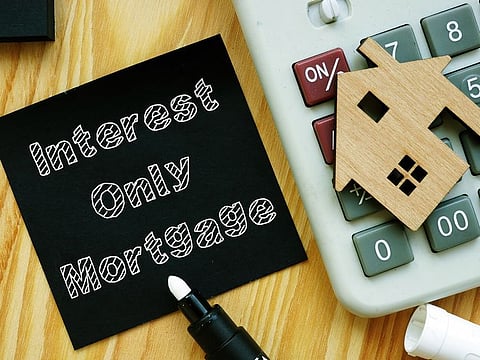For new UAE residents buying a home, banks are more willing to help on mortgages
Some UAE banks start accepting first salary credit as proof - will more lenders follow?

Dubai: Are you a new resident to the UAE? With plans to buy a property at the first opportunity rather than rent?
Banks in the UAE are slowly starting to realise the potential these newcomers to the country could offer when it comes to expanding their mortgage books.
“Because mindsets are changing when it comes to property buying – these new residents see the UAE as their new home and would rather spend on buying a home rather than rent,” said banker. “Not just that, they want to get into the property market at the earliest.”
While some opt for an all-cash deal, there is still a sizeable number who need a mortgage to finance any property purchase. This is where banks are trying to do their bit in helping the process along.
According to market sources, there are loans getting approved if the client shows his/her first salary credit details. That’s against the six months of salary records that needed to be shown for a newcomer to the UAE to get a loan or mortgage.
But one salary credit is ‘still not the norm’, according to Michael Hunter, CEO of Holo.
“New to the country (property) buyers are common at the moment. It is not possible to mortgage a property in the UAE (through lending) from an overseas bank, and some lenders here will require up to 6-month salary credits shown in their UAE accounts.
“For business owners, this can be even more difficult with 2 years trading being needed as a minimum in most cases.”
This is what lenders are trying to ease, through initiatives such as the first salary credit detail. Bankers realise that they are missing out on possible opportunities if they retain the same set of requirements on loans to new residents.
“If the current trends on property values remain, Dubai homes will continue to get more expensive,” said a developer. “That would mean these potential buyers will get priced out of the market six- or 12 months down the line.”
Can developers help?
Dubai developers are doing their part by asking for low down payments. Even then, most of the big developers still insist on construction-linked payments and then a year or two to clear all outstanding payments once the handover is done.
Again, this is not easy for those residents who are getting started on their jobs and living in the UAE. More so if they are young and relatively new to their jobs.
That’s the other thing developers are saying – today’s property buyers are skewing youngers, in their late 20’s and early 30’s. And they are not the sort to wait to buy a home.
Will banks offer higher loan-to-value?
When it comes to new residents wanting to turn property owners, extending higher loans relative to the property value may be quite difficult for banks. Even when they are trying to be as accommodative as possible.
“It is important to note options for new-to-country residents are not really improving,” said Hunter. “The more favourable options remain with the same few banks.
“If an applicant moves to the UAE with the same company they worked for overseas, then this opens up possibilities with some lenders. And the ability to show continued employment with the same firm will help.”
Mortgages are on a high
In the coming weeks, the leading banks will be reporting first-half 2023 results and these should show them signing off on higher mortgages. Demand for property buying from end-users in Dubai and the UAE is making for a strong showing after a dip in the fourth quarter of 2022 because of the succession of interest rate hikes.
Now, UAE property buyers do seem to have adjusted well to the higher EMIs they are required to pay. Because they are in the mood to buy a home rather than keep on renting.
Banks will only need to tweak their lending processes a little to widen that pool of buyers by including newly installed residents in the UAE.
Can non-resident investors pick up mortgage from a UAE bank?
"Most UAE based lenders do have non-resident products in their bouquet - however only a few show an aggressive approach in the lending. The entry cost could vary with most charging a 1% arrangement fee. "The running cost would even be slightly higher than that for a UAE resident-based lending. With interest rates starting from 5.14% fixed for 3 years, the tenure of the mortgage could be same. The underwriting policy does vary as most banks would conduct stringent due diligence prior offering the approval." - Dhiren Gupta, Managing Director of 4C Mortgage Consultancy
Sign up for the Daily Briefing
Get the latest news and updates straight to your inbox


